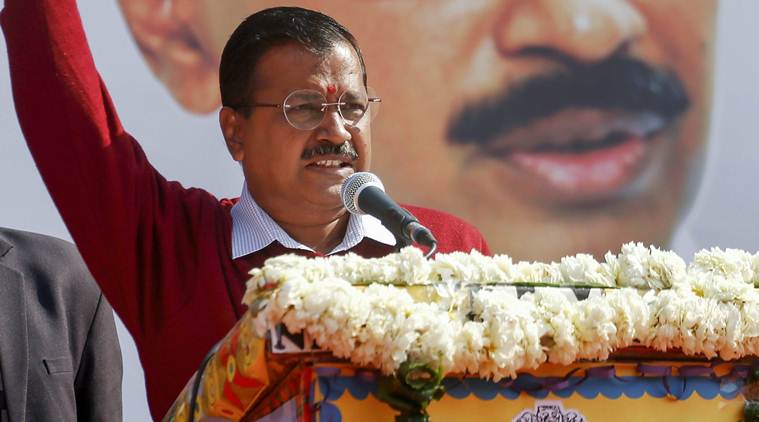The chief minister's decision came a day after he said that his party will ensure full statehood status for Delhi within two years if AAP won all the seven seats.
Delhi Chief Minister Arvind Kejriwal on Saturday announced that he will sit on an indefinite hunger strike from March 1 demanding full statehood for the national capital. “From March 1, I will begin a hunger strike. I am going to fast till we get statehood. I am ready to face death,” the Aam Aadmi Party chief said in the state Assembly.
Advertising
“Andolan (a movement) is the only way out of this crisis. The people of Delhi have to come on the streets to fight for full statehood,” he added.
Taking to Twitter later, Kejriwal said, “I cannot repay the debt of my Delhi for all that the people here have given me in my life. It will be my proud privilege to lay down my life fighting for Delhiites rights. Delhi deserves full statehood and must get it at all costs.”
The chief minister’s decision came a day after he said that his party will ensure full statehood status for Delhi within two years if AAP wins all seven seats in the forthcoming Lok Sabha elections. “If the Aam Aadmi Party wins all seven seats in Delhi, we will ensure full statehood to Delhi within two years,” Kejriwal had told a public rally in the national capital.
Kejriwal also targeted Prime Minister Narendra Modi, saying, “The Prime Minister is unable to handle national issues, why is he bothered about the state municipal corporation and Delhi Police. He should worry about national issues. Let us handle Delhi.”
He added, “Why is democracy being denied to the people of Delhi? The elected government of Delhi has no powers to work efficiently for the people of Delhi.”
The chief minister claimed the people of Delhi were facing “injustice and humiliation” since independence because the government elected by them lacked power to work for them. “The elected government of Delhi cannot give people justice, work for them and take up development works because it lacks power and the central government obstructs its functioning. Is the value of Delhi voters less than other states?” he asked.
The AAP leader’s remarks came in the wake of a split-judgment by the Supreme Court on regulations of services in the national capital pertaining to the power tussle between the Delhi government and Lieutenant Governor Anil Baijal. A two-judge bench consisting of Justice Ashok Bhushan and Justice AK Sikri disagreed on the jurisdiction of Centre and Delhi government over appointment and transfer of bureaucrats in Delhi but ruled unanimously that the Anti-Corruption Bureau will remain under the Centre’s control. A larger bench will now take a call on who will have the final say on the transfer and appointment of bureaucrats in Delhi.
Last week, the chief minister had expressed solidarity with his Puducherry counterpart V Narayanasamy, who is on a dharna in front of the Raj Nivas against Lt-Governor Kiran Bedi since February 13. CM Narayanasamy has been locked in a turf war with Bedi over the latter’s “negative stand” towards various proposals of the territorial government.
“Lieutenant Governor of Puducherry (Kiran Bedi) is creating a lot of obstacles in the development work and creating problems for the elected government. We are facing exactly similar problems in Delhi,” Kejriwal had said.

Comments
Post a Comment